Redarc Trailer Brake Controller
- RED92CR
- Electric
- Electric over Hydraulic
- Proportional Controller
- Up to 2 Axles
- Redarc
- Behind-Dash
- Plug-In
- Dash-Mounted Knob
- Single Trailer Only
- Indicator Lights
This is one of our favorite brake controllers, with flawless braking and a tiny dash knob that looks like it came straight from the factory. Its unique off-roading mode helps you handle rough conditions, so get out there and get towing.
Features:
- Proportional - Smooth, safe, and good for your brakes long-term
- Off-road mode - A unique feature that gives you direct control of your trailer's brakes
- Sleek (tiny!) knob that blends into your dash - The main unit mounts out of sight behind the dashboard
- Simple controls - Use the knob to adjust the settings, activate manual override, and troubleshoot
- Safe - Meets or exceeds both UNECE R21 and FMVSS 201 regulations for sustainability and safety
- Plug-and-play - Vehicle-specific harness included
- Made in Australia - If it can take the Outback, it can take anything, mate
Specs:
- For trailers with up to 3 axles (6 brake assemblies)
- Compatible with electric or electric-over-hydraulic trailer brakes
- Control knob dimensions: 1-7/8" long x 9/16" wide x 3/4" tall
- Length without dial: 1-1/4"
- Works with 12-volt and 24-volt vehicle electrical systems
- Output voltage range: 9V - 32V
- Output current rating: 25 amps continuous
- Maximum charging voltage: 12V DC
- 2-Year warranty
Off-Road Mode
![Redarc Tow Pro Elite User Controlled LED Signal]()
The off-road mode is a unique feature of the Redarc Tow-Pro Elite. In this mode, the brake controller will apply your trailer's brakes with a preset amount of power, independent of what your tow vehicle is doing. This is ideal for off-roading or challenging conditions. Set the power low if you're towing through sand or mud so that the trailer doesn't stop with too much force and act as an anchor. If navigating a steep descent, set the power to a higher level to ensure that the trailer doesn't push against the tow vehicle.
To activate the off-road mode, rotate the knob counterclockwise to 0 and apply your vehicle's brakes. Push down on the knob twice (2 times within 1 second) and release the brakes. The knob will turn green to let you know that the mode has been activated.
![Redarc Tow Pro Elite review - is redarc elite worth the money]()
How to Use Redarc Tow-Pro Elite
Adjusting the braking settings on the Tow-Pro Elite is super simple. To get more power output - the maximum amount of power that will be applied to your trailer's brakes - rotate the knob clockwise toward 10. To decrease the power output, rotate it counterclockwise toward 0.
![Redarc Tow Pro Elite Braking Output Red Light]()
When you apply the tow vehicle's brakes, the knob will change from blue to red to signal that the trailer brakes are being activated. The higher the braking power output, the deeper the red that you will see.
Manual Override
To engage manual override, simply press the control knob. This will activate the trailer's brakes and brake lights independent of your tow vehicle, great for stopping sway or controlling your trailer's momentum in an emergency.
How to Calibrate Redarc Tow-Pro Elite
When you are calibrating the brake controller for the first time, the LED lights will signal your progress.
You'll start by braking 20 times or so to let the unit learn its orientation and the direction of travel. You don't need to have a trailer connected for it to calibrate; the only difference is that the knob won't illuminate at all. If your trailer is connected, the LED light will flash green/blue as it calibrates. When the display turns solid blue, initial calibration is complete.
![Redarc Tow Pro Elite Brake Controller Calibration]()
Once done, the unit will remain calibrated. If recalibration is required, it will happen automatically and without LED indication.
How to Install Redarc Tow-Pro Elite
The Elite has almost no mounting restrictions. It comes in 2 pieces: the main unit and the control knob. The main unit mounts out of sight and out of the way. You don't have to worry about dinging your knee on a bulky brake controller or interfering with your vehicle's airbags.
![Redarc Tow Pro Elite Dash Mounted Remote Knob]()
The control knob can be installed in any convenient spot that's easy for you to see and access. This can be a blank switch panel, an open spot on your center console, or wherever there's space on your dashboard. A universal mounting panel is included to ensure a clean, from-the-factory look. Custom-fit panels are available for certain vehicles as well. Before you do any drilling, be sure there's enough clearance behind the dash for the entire knob to install!
![where to install REDARC Tow Pro Elite on 2023 Jeep Wrangler 4xe]()
Once you've decided where you want to put the control knob, you'll need to find a good place to install the main unit. Your only restriction is the 3' cable connecting the main unit and the control knob. Securely mount the box using screws, double-sided tape, or zip-ties (not included). A mounting kit (RE67FR - sold separately) is also available for the Tow-Pro Elite. Do not attach the module to wiring or cables that can shift as you drive!
![Custom wiring harness of Redarc Tow Pro Elite]()
Then plug the custom-fit harness right into your vehicle and the brake controller and you're done!
Note: If you don't already have a 7-way plug at the back of your vehicle, take a look at our exclusive 7- and 4-way brake-control installation kit (ETBC7 - sold separately).
A 30-amp circuit breaker kit (331-CBK30-EB - sold separately) may also be required for installation. For assistance in properly wiring the Tow-Pro Elite, please refer to the diagrams below:
![Redarc Tow Pro Elite Wiring Diagram]()
![Redarc Tow Pro Elite Wiring Diagram]()
What is Proportional Braking?
![What is proportional Braking]()
Proportional braking means that your trailer brakes mimic your tow vehicle's brakes. If you slam on the brakes in your vehicle, your trailer brakes will activate with the same intensity; if you brake lightly, your trailer brakes lightly too. The trailer's braking is in proportion to your vehicle's braking. This saves wear and tear on the tires and the brakes on both your vehicle and trailer.
The Tow-Pro Elite uses an internal 3-axis accelerometer to sense how your vehicle is braking so it can send the right amount of braking power to your trailer. It measures the inertia of your tow vehicle and activates the trailer's brakes to slow at the same rate. The result is uniform braking across your towing setup. No push-pull action - just smooth, proportional braking every time.
303000 Tekonsha Dual Plug, Direct Install Brake Control Wiring Harness Adaptor
Replaces Tekonsha 3030-P
TPH-017 Redarc Tow Pro Wiring Loom Adapter for Existing Tekonsha Brake Controller Harness Connection
EBRH-ACCV3 Redarc Tow-Pro Elite Trailer Brake Controller - Dash Mounted Knob - Hidden - Proportional Brake Controller
Replaces Redarc 331-EBRH-ACCV2




























































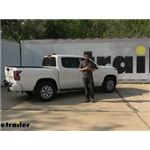
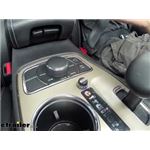

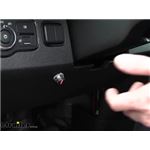
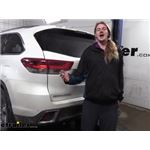

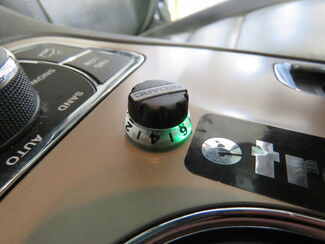
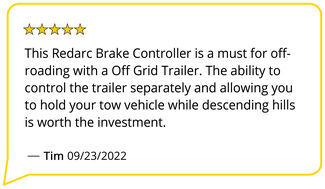
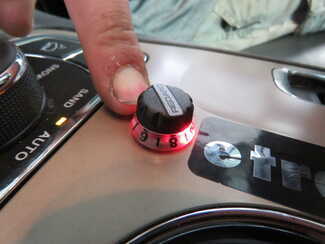
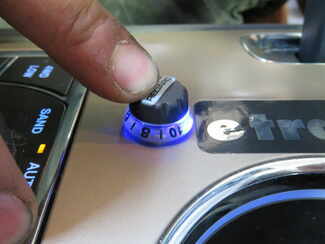
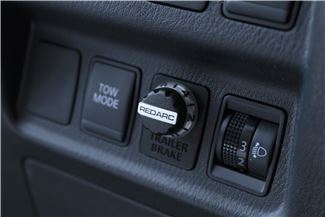
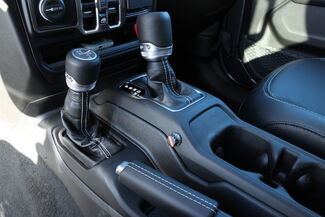

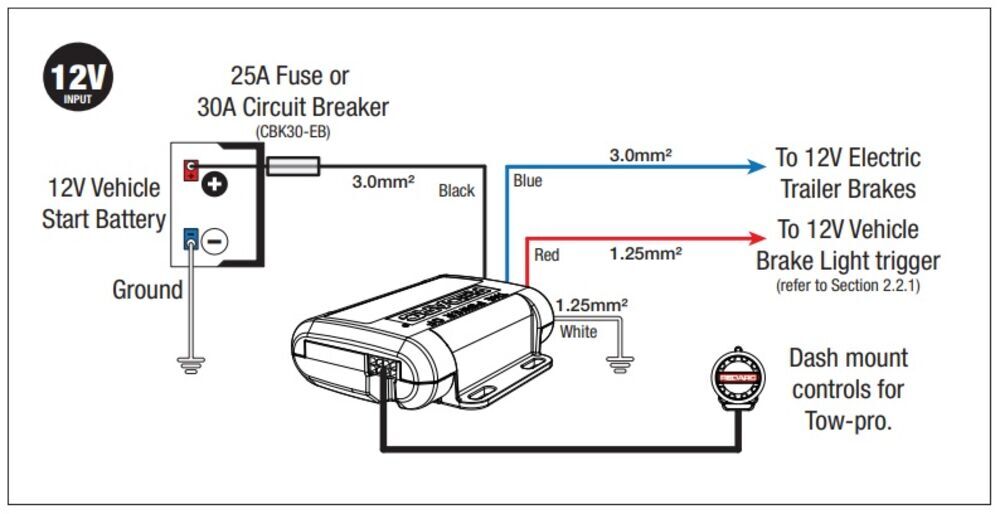
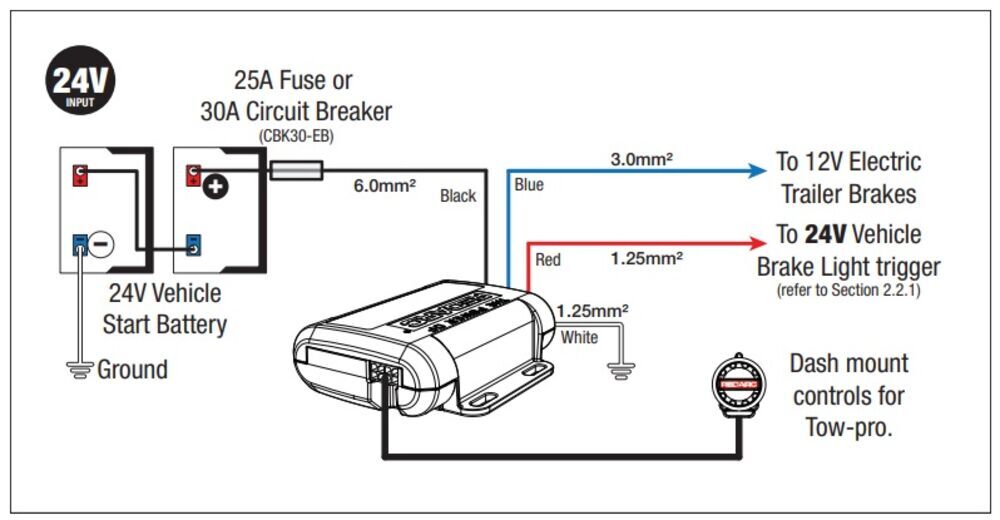
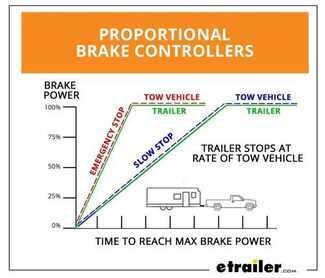





















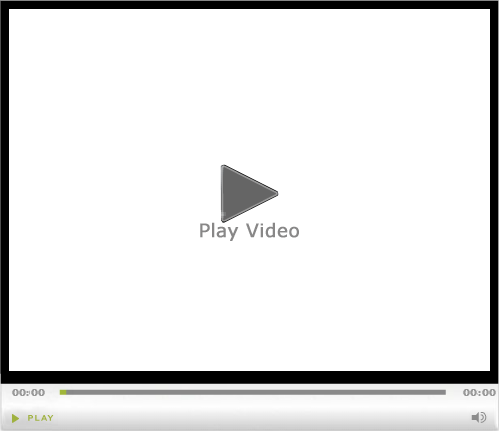


















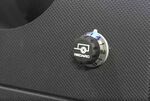



Thank you! Your comment has been submitted successfully. You should be able to view your question/comment here within a few days.
Error submitting comment. Please try again momentarily.